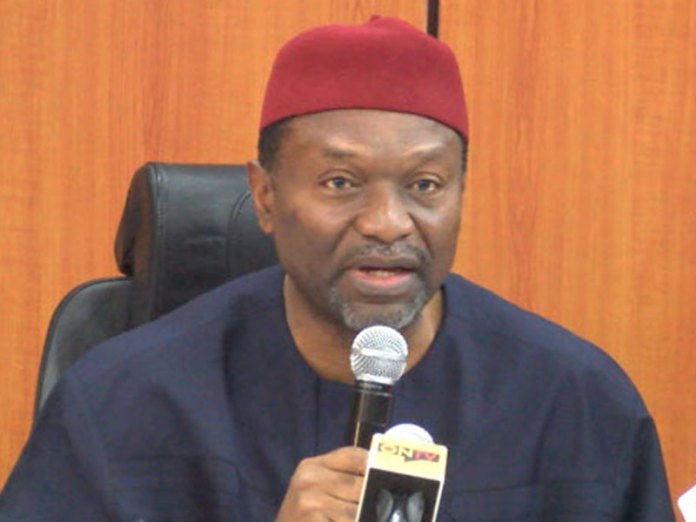The budget and national planning ministry says it plans to diversify revenue sources and increase tax revenues from six per cent to 15 per cent in the next four years.
The Minister of Budget and National Planning, Sen. Udoma Udo Udoma, made this known in Abuja on Wednesday when a group from Financing for Development (F4D), a joint project of ActionAid Nigeria (AAN) and OXFAM paid him an advocacy visit.
The group presented a research finding on private sector taxation policies and practice of companies.
Cue in audio 1 (Udoma)
“One of the things that we have identified and looked at there in the plan is that there is a need to diversify our sources of revenue and the need to increase our tax revenues.
“Currently the tax revenue that government realises is about six per cent of the Gross Domestic Product (GDP).
“We intend to increase that percentage format from six per cent to something nearer to 15 per cent of the GDP.
“To achieve that, we need to look at our tax system and look at a way of broadening the tax system and making it more efficient, more effective and increasing the tax revenue.’’
Cue out audio 1
Udoma said the plan was contained in the Nigeria’s Economic Recovery and Growth Plan
He said the plan was to get the country out of recession and to get Nigeria back on the path of sustainable, diversified, and inclusive growth over the next four years.
Udoma promised to study the report and forward it to the ministry of finance to enable the Federal Inland Revenue Service (FIRS) to study it and look at how it can integrate some of its recommendations into its mandate.
He said resources collected would be well spent to encourage Nigerians to pay taxes when due.
Udoma said: “one of the things we want to do is to reduce linkages so that we make sure that funds are well spent.
“I think as people see how targeted things are, they will be encouraged to pay their tax.’’
Mr Paul Akioyamen, Senoir Manager, Research/Technical, Chartered Institute of Taxation of Nigeria (CITN), said income collected from natural resources, taxation, borrowing, and grants were some of the revenue sources available to government to finance development.
Akioyamen said the report observed issues in private sector taxation policy and practice in Nigeria.
He identified one of the issues as low tax compliance by individuals and private sector companies in the form of tax evasion, dodging and avoidance leading to poor revenue generation by the government
Akioyamen said multiplicity of taxes, levies, permits and fees charged citizens out of their meagre earnings.
According to him, sometimes, these are transmitted to consumers, making the prices of goods and services to increase and become unbearable for citizens.
He stated that multiplicity of taxes discourages taxpayers and motivates them to seek ways of evading tax payment
Akioyamen further stated that the unfavourable business environment impacts the behavior of taxpayers just as corruption among tax collectors reduces the amount of tax revenues that reach the coffers of government.
He said political corruption also occurs when politicians approve payments for contracts without deducting relevant taxes leading to loss of tax revenue.
Cue in audio 2 (Akioyamen)
“The report highlighted instances where we needed to check out those political interferences and ensure that indeed once contracts are awarded and contracts sums paid, the taxes thereafter are withheld and duly remitted to appropriate government agency.’’
Cue out audio 2
He said that non-profit organizations who transact for-profit activities without paying tax also shortchange the government in terms of revenue generation. (NAN)


